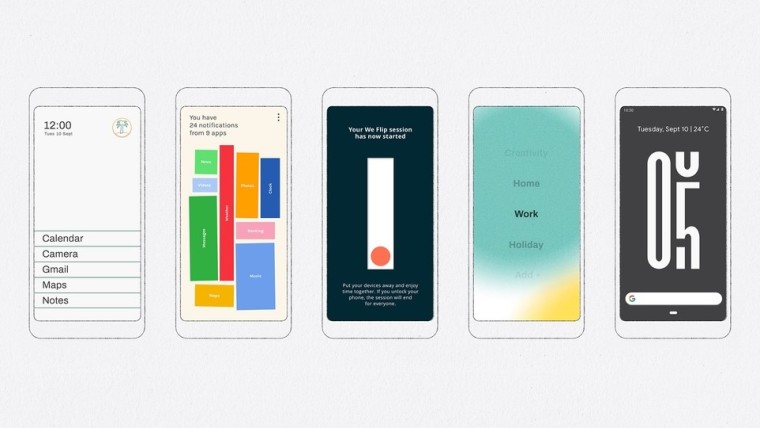
Excessive use of technology is something companies have been addressing more and more in recent times, with features such as Digital Wellbeing on Android being promoted as ways to keep your screen time in check. Today, Google has announced a new initiative to help combat excessive phone use and find the right balance for each user when it comes to how much time they spend looking at a screen.
Called Digital Wellbeing Experiments, they're a set of projects that offer different approaches to helping users manage the time they spend on their phones. Google is offering guidance on how developers can bring digital wellbeing into their own products, but it's also kickstarting the initiative with five of its own apps.
These five apps are Unlock Clock, which simply counts how many times you've unlocked your phone; Post Box, which stores all your notifications and keeps them hidden until a time when you want to see them, sort of like a mailbox; We Flip, which lets groups of friends or family flip a switch to turn off Do Not Disturb mode collectively so they can focus on being together; Desert Island, which restricts users to their most essential apps for a day; and Morph, which lets users set a specific group of apps that will be available during certain times to avoid distractions.
Beyond the realm of proper apps, Google has also come up with Paper Phone, which lets users choose a set of apps they'll need throughout the day, and those will be printed into a paper sheet. For a day, users can use this paper "phone" to stay on top of things such as to-do lists, maps, and games like Sudoku.
To learn more about Digital Wellbeing Experiments, you'll want to visit the dedicated webpage, where you can also find documentation to get started on making your own digital wellbeing features. The toolkit to create these experiments is open-source and can be found on GitHub.
















